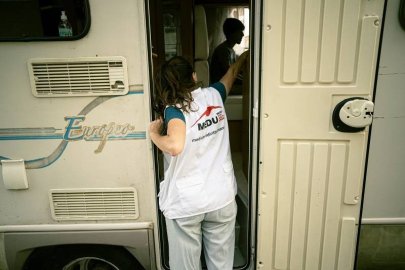Introduction
In recent years, Italy has been at the forefront of immigration debates, with various initiatives aimed at supporting migrants and refugees. However, the recent closure of a medical charity clinic in Tuscany due to funding cuts has raised serious concerns about the sustainability of healthcare services for vulnerable populations. This situation not only highlights the challenges faced by medical charities but also underscores broader issues related to immigration and public health in Italy.
The Role of Medical Charities in Supporting Migrants
Medical charities play a crucial role in providing essential healthcare services to migrants and refugees, who often face significant barriers in accessing medical care. These barriers can include:
Medical charities often step in to fill these gaps, offering free or low-cost medical services, mental health support, and health education. Their work is vital for ensuring that marginalized communities receive the care they need.
The Closure of the Tuscany Clinic
The recent closure of a medical charity clinic in Tuscany is a stark reminder of the fragility of these essential services. The clinic, which had been serving migrants and local communities for years, was forced to shut down due to substantial funding cuts. This development has left many without access to critical healthcare services.
Impact on the Community
The closure of the clinic has had immediate and far-reaching effects on the community, including:
Funding Challenges for Medical Charities
The closure of the Tuscany clinic raises critical questions about the funding landscape for medical charities in Italy. Many of these organizations rely on a combination of government support, private donations, and grants to operate. However, the financial environment has become increasingly challenging due to:
The Need for Sustainable Solutions
To address these challenges, it is essential to explore sustainable solutions that can help medical charities continue their vital work. Possible approaches include:
The Broader Context of Immigration and Healthcare in Italy
The situation in Tuscany is emblematic of broader issues related to immigration and healthcare in Italy. The country has seen a significant influx of migrants in recent years, leading to strained resources and heightened tensions. The intersection of immigration policy and public health is complex, with several factors influencing the landscape:
Conclusion
The closure of the medical charity clinic in Tuscany serves as a poignant reminder of the challenges facing healthcare services for migrants in Italy. As funding cuts threaten the viability of these essential services, it is crucial for stakeholders to come together to find sustainable solutions. By raising awareness, advocating for policy changes, and fostering collaborative partnerships, we can work towards a future where all individuals, regardless of their immigration status, have access to the healthcare they need.
As the landscape of immigration continues to evolve, the importance of supporting medical charities cannot be overstated. Their work is vital not only for the health of migrants but also for the overall well-being of the communities they serve. In the face of challenges, it is essential to remain committed to ensuring that healthcare remains accessible and equitable for all.










